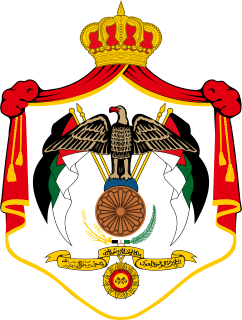The Greens of Andorra is a green political party in Andorra.
The Democratic Party is a center-right party in Bulgaria led by Alexander Pramatarski. The party is a member of the European People's Party (EPP).
The Liberal Party, commonly known as the Blue Party was a political party in Paraguay, ruling the country for most of the period between 1904 and 1940.

Folketing elections were held in Denmark on 28 October 1947, except in the Faroe Islands where they were held on 18 February 1948. The Social Democratic Party remained the largest in the Folketing, with 57 of the 150 seats. Voter turnout was 85.8% in Denmark proper and 60.1% in the Faroes.
The Russian Party in Estonia was a minor political party in Estonia.

General elections were held in Belgium on 26 March 1961. The result was a victory for the Christian Social Party, which won 96 of the 212 seats in the Chamber of Representatives and 47 of the 106 seats in the Senate. Voter turnout was 92.3%. Elections for the nine provincial councils were also held.

General elections were held in Venezuela on 1 December 1963. The presidential elections were won by Raúl Leoni of Democratic Action, who received 32.8% of the vote, whilst his party won 66 of the 179 seats in the Chamber of Deputies and 22 of the 47 seats in the Senate. Voter turnout was 92.3% in the presidential election and 90.8% in the Congressional elections.

Parliamentary elections were held in Norway on 17 October 1927. The result was a victory for the Labour Party, which won 59 of the 150 seats in the Storting.

Parliamentary elections were held in Norway in 1891. The result was a victory for the Liberal Party, which won 63 of the 114 seats in the Storting. The Conservative Party and the Moderate Liberal Party contested the elections in an alliance, although separate lists were used in some constituencies.
Elections to the Supreme Soviet were held in the Soviet Union on 12 March 1950.

General elections were held in Jordan on 29 August 1951. As political parties were banned at the time, all candidates ran as independents, although some affiliated with the Jordanian Communist Party, the Ba'ath Party the Arab Constitutional Party and the Umma Party all won seats.

General elections were held in Brazil on 3 October 1994. The presidential elections were won by Fernando Henrique Cardoso of the Brazilian Social Democracy Party, who received 54.3% of the vote. Cardoso won the election by a margin of 27.3%, the largest in Brazilian history to date, and the first of his two landslide victories. The Brazilian Democratic Movement Party remained the largest party in the Chamber of Deputies and the Senate.

General elections were held in Portugal on 28 April 1918, following a coup by Sidónio Pais in December 1917. The elections were boycotted by the Democratic Party, the Evolutionist Party and the Republican Union, who had won over 90% of the seats in the 1915 elections.

Parliamentary elections were held in Portugal on 11 May 1919. The three main parties that boycotted the 1918 elections returned to contest the elections. The result was a victory for the Democratic Party, which won 86 of the 163 seats in the House of Representatives and 36 of the 71 seats in the Senate.

Parliamentary elections were held in Portugal on 30 October 1938. The country was a one-party state at the time and the National Union was the only party to contest the elections, with no opposition candidates allowed to run.

Parliamentary elections were held in Portugal on 1 November 1942. The country was a one-party state at the time and the National Union was the only party to contest the elections, with no opposition candidates allowed to run.

Parliamentary elections were held in Colombia on 16 March 1958 to elect the Senate and Chamber of Representatives. They were the first elections held under the National Front agreement, which only allowed the Conservative Party and the Liberal Party to contest the elections, and allocated 50% of the seats in both houses to each party. As a result, the main contest at the elections was between factions within each party.

The United Labour Social Democratic Party was a political party in Bulgaria.
The Tenants' Union was a political party in Estonia.

The New Democracy Party was a political party in Lithuania.














